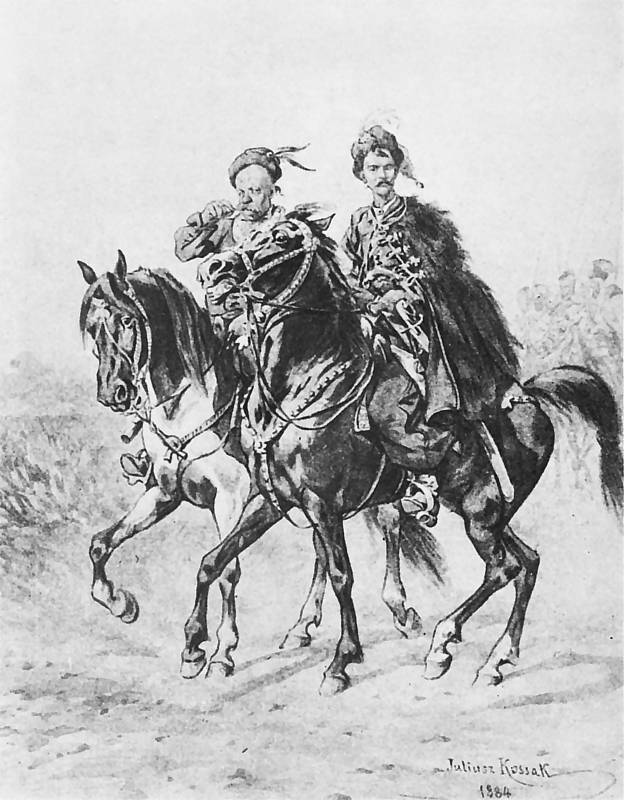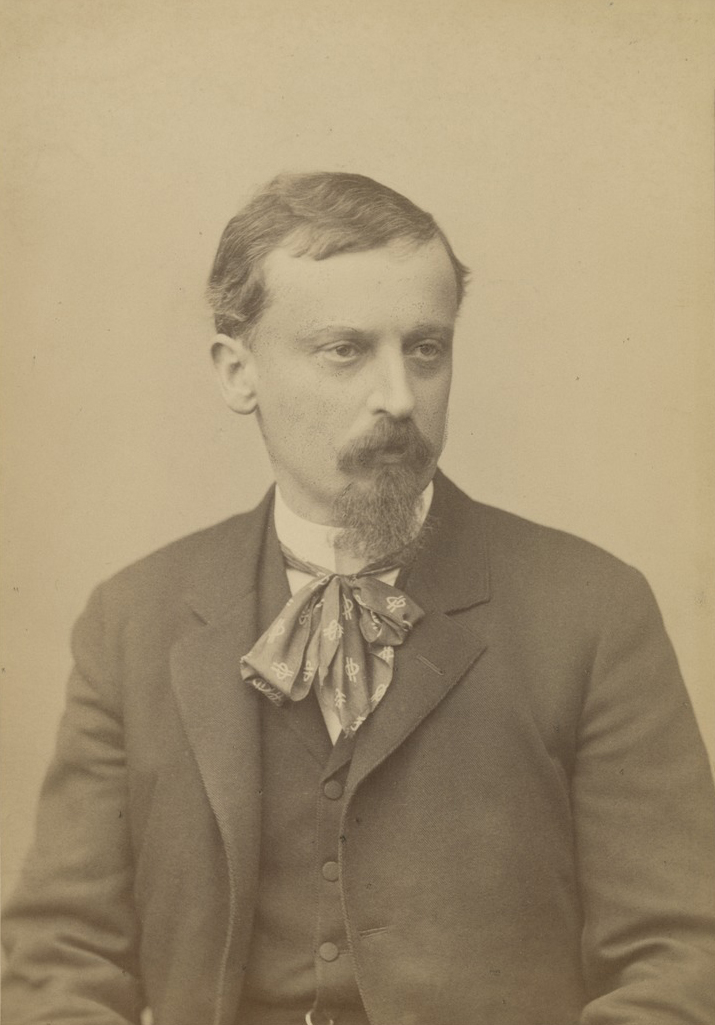|
Rzędzian
Rzędzian is a fictional character created by Henryk Sienkiewicz. He appears as the secondary character in '' With Fire and Sword'' and in ''The Deluge''. He is a poor Polish nobleman who serves Jan Skrzetuski. He's cunning and greedy but always loyal to his master. He helps to free Helena Kurcewiczówna from Bohun. His parents and 91-year-old grandfather live in Rzędziany. In ''The Deluge'' he is a wealthy nobleman and starosta of Wąsocze. In Jerzy Hoffman's film Rzędzian is portrayed by Wojciech Malajkat Wojciech () is a Polish name, equivalent to Czech Vojtěch , Slovak Vojtech, and German Woitke. The name is formed from two components in archaic Polish: * ''wój'' (Slavic: ''voj''), a root pertaining to war. It also forms words like ''wojownik .... References * Characters in novels of the 19th century Literary characters introduced in 1884 Sienkiewicz's Trilogy Fictional Polish people {{novel-char-stub ... [...More Info...] [...Related Items...] OR: [Wikipedia] [Google] [Baidu] |
With Fire And Sword
''With Fire and Sword'' ( pl, Ogniem i mieczem, links=no) is a historical novel by the Polish author Henryk Sienkiewicz, published in 1884. It is the first volume of a series known to Poles as The Trilogy, followed by ''The Deluge'' (''Potop'', 1886) and ''Fire in the Steppe'' (originally published under the Polish title ''Pan Wołodyjowski'', which translates to ''Lord Wolodyjowski''). The novel has been adapted as a film several times, most recently in 1999. ''With Fire and Sword'' is a historical fiction novel, set in the 17th century in the Polish–Lithuanian Commonwealth during the Khmelnytsky Uprising. It was initially serialized in several Polish newspapers, chapters appearing in weekly installments. It gained enormous popularity in Poland, and by the turn of the 20th century had become one of the most popular Polish books ever. It became obligatory reading in Polish schools, and has been translated into English and most European languages. The series was a vehicle fo ... [...More Info...] [...Related Items...] OR: [Wikipedia] [Google] [Baidu] |
Helena Kurcewiczówna
Helena Kurcewicz (full name: Helena Kurcewiczówna-Bułyha, later Skrzetuska) is a fictional character appearing in the novel ''With Fire and Sword'' by Henryk Sienkiewicz as the main female protagonist. She is also mentioned in ''The Deluge'' and in '' Colonel Wolodyjowski''. Helena is a beautiful orphaned princess living with her aunt and cousins in Rozłogi. Jan Skrzetuski falls in love with her and vies for her hand against the Cossack colonel Bohun to whom she was promised. In the 1999 film, she is portrayed by Izabella Scorupco. Story Helena was born in 1630. Her mother died in childbirth. Her father, prince Wasyl Kurcewicz Bułyha, was the master of Rozłogi and served prince Michał Wiśniowiecki. In 1634, he was charged of treason and forced to leave the country. Since then nobody heard of him, he probably soon died. Few years later he was cleared of the charge. Helena was raised by her uncle, Konstantyn. She grew in Rozłogi with her five cousins. After Konstant ... [...More Info...] [...Related Items...] OR: [Wikipedia] [Google] [Baidu] |
Bohun (fictional)
Jur Bohun (also Yuri Bogun) is the main antagonist in the novel '' With Fire and Sword'' by Henryk Sienkiewicz. He is a famous Cossack colonel of unknown origin, and originally a friend (more like an adopted son) of the Kurcewicz family. He falls in love with Helena Kurcewiczówna and wants to marry her. However he is thwarted by his rival, Jan Skrzetuski, a Polish nobleman, who forces the matron, Princes Kurcewicz to promise him Helena's hand, with Helena's approval. Betrayed and rejected Bohun raids the Kurcewicz estate, slaughters the family, kidnaps Helena and joins the ongoing Cossack uprising. The novel revolves around the struggle between Skrzetuski and Bohun with the Khmelnytsky Uprising as historical background. The character is based on the historical figure, Ivan Bohun. Bohun is portrayed by Aleksandr Domogarov in 1999 Jerzy Hoffman's film '' With Fire and Sword''. Character history Date of Bohun's birth is unknown, as well as the origin of his parents. He grew up ... [...More Info...] [...Related Items...] OR: [Wikipedia] [Google] [Baidu] |
Jan Skrzetuski
Jan Skrzetuski is a fictional character created by Polish author Henryk Sienkiewicz in the novel ''With Fire and Sword''. He is a man of honour, always faithful to his master, duke Jeremi Wiśniowiecki. He loves Helena Kurcewiczówna, who was kidnapped by the Ukrainian Cossack Yuri Bohun, who is also in love with her. Skrzetuski is the best friend of Michał Wołodyjowski. Jan Skrzetuski is partly based on a historical character, Mikołaj Skrzetuski, the Polish hero of the Siege of Zbarazh. In the 1999 film ''With Fire and Sword'' he is portrayed by Michał Żebrowski. Story Jan Skrzetuski (modeled on the historic form of Mikołaj Skrzetuski, a colonel from Greater Poland of the Jastrzębiec clan) was a young Polish nobleman (szlachcic) of Jastrzebiec Coat of Arms serving Prince Jeremi Wiśniowiecki as lieutenant of the hussar regiment. In 1647 he was coming back from Crimea where he had been sent as an envoy. On his way he saved Bohdan Khmelnytsky who was attacked by Danie ... [...More Info...] [...Related Items...] OR: [Wikipedia] [Google] [Baidu] |
With Fire And Sword (film)
''With Fire and Sword'' ( pl, Ogniem i Mieczem; uk, Вогнем і Мечем, Vohnem i Mechem) is a 1999 Polish historical drama film directed by Jerzy Hoffman. The film is based on the novel ''With Fire and Sword'', the first part in The Trilogy of Henryk Sienkiewicz. At the time of its filming it was the most expensive Polish film ever made. Plot The story is set in Ukrainian lands of the Crown of the Kingdom of Poland during the Khmelnytsky Uprising of the mid-17th century. A Polish noble, Skrzetuski, and a Cossack otaman Bohun, both fall in love with the same woman, Helena. Their rivalry unfolds against the backdrop of a Cossack uprising led by Bohdan Khmelnytsky, aimed at reclaiming control of the land from the hands of the Polish nobles. Historic events form a framework for an action and character driven plot, and fictional characters mingle with historic ones. The movie, as the book, culminates with the savage siege of Zbarazh. Cast * Izabella Scorupco as Helena Kurcewic ... [...More Info...] [...Related Items...] OR: [Wikipedia] [Google] [Baidu] |
The Deluge (novel)
''The Deluge'' ( pl, Potop) is a historical novel by the Polish author Henryk Sienkiewicz, published in 1886. It is the second volume of a three-volume series known to Poles as "The Trilogy," having been preceded by ''With Fire and Sword'' (''Ogniem i mieczem'', 1884) and followed by ''Fire in the Steppe'' (''Pan Wołodyjowski'', 1888). The novel tells a story of a fictional Polish–Lithuanian Commonwealth soldier and noble Andrzej Kmicic and shows a panorama of the Commonwealth during its historical period of the Deluge, which was a part of the Northern Wars. Plot Chapters I – V The novel begins with a description of the families living in and around the district of Rossyeni, the oldest and most powerful of which are the Billeviches. Aleksandra Billevich, the granddaughter of the chief hunter of Upita, has been orphaned and left in the care of the noble families. She is destined to marry Andrei Kmita (Polish: Andrzej Kmicic), whose father was the best friend of her gran ... [...More Info...] [...Related Items...] OR: [Wikipedia] [Google] [Baidu] |
Henryk Sienkiewicz
Henryk Adam Aleksander Pius Sienkiewicz ( , ; 5 May 1846 – 15 November 1916), also known by the pseudonym Litwos (), was a Polish writer, novelist, journalist and Nobel Prize laureate. He is best remembered for his historical novels, especially for his internationally known best-seller ''Quo Vadis'' (1896). Born into an impoverished Polish noble family in Russian-ruled Congress Poland, in the late 1860s he began publishing journalistic and literary pieces. In the late 1870s he traveled to the United States, sending back travel essays that won him popularity with Polish readers. In the 1880s he began serializing novels that further increased his popularity. He soon became one of the most popular Polish writers of the turn of the 19th and 20th centuries, and numerous translations gained him international renown, culminating in his receipt of the 1905 Nobel Prize in Literature for his "outstanding merits as an epic writer." Many of his novels remain in print. In Poland he is ... [...More Info...] [...Related Items...] OR: [Wikipedia] [Google] [Baidu] |
Wojciech Malajkat
Wojciech () is a Polish name, equivalent to Czech Vojtěch , Slovak Vojtech, and German Woitke. The name is formed from two components in archaic Polish: * ''wój'' (Slavic: ''voj''), a root pertaining to war. It also forms words like ''wojownik'' ("warrior") and ''wojna'' ("war"). * ''ciech'' (from an earlier form, ''tech''), meaning "joy". The resulting combination means "he who enjoys war" or "joyous warrior". Its Polish diminutive forms include ''Wojtek'' , ''Wojtuś'' , ''Wojtas'', ''Wojcio'', ''Wojteczek'', ''Wojcieszek'', ''Wojtaszka'', ''Wojtaszek'', ''Wojan'' (noted already in 1136), ''Wojko'', and variants noted as early as 1400, including ''Woytko'', ''Woythko'', and ''Voytko''. The feminine form is Wojciecha (). Related names in South Slavic languages include ''Vojko'', ''Vojislav'', and ''Vojteh''. The name has been rendered into German in several different variations, including: ''Woitke'', ''Witke'', ''Voitke'', ''Voytke'', ''Woytke'', ''Vogtke'', ''Woytegk'', ' ... [...More Info...] [...Related Items...] OR: [Wikipedia] [Google] [Baidu] |
Christianity
Christianity is an Abrahamic monotheistic religion based on the life and teachings of Jesus of Nazareth. It is the world's largest and most widespread religion with roughly 2.38 billion followers representing one-third of the global population. Its adherents, known as Christians, are estimated to make up a majority of the population in 157 countries and territories, and believe that Jesus is the Son of God, whose coming as the messiah was prophesied in the Hebrew Bible (called the Old Testament in Christianity) and chronicled in the New Testament. Christianity began as a Second Temple Judaic sect in the 1st century Hellenistic Judaism in the Roman province of Judea. Jesus' apostles and their followers spread around the Levant, Europe, Anatolia, Mesopotamia, the South Caucasus, Ancient Carthage, Egypt, and Ethiopia, despite significant initial persecution. It soon attracted gentile God-fearers, which led to a departure from Jewish customs, and, a ... [...More Info...] [...Related Items...] OR: [Wikipedia] [Google] [Baidu] |
Szlachta
The ''szlachta'' (Polish: endonym, Lithuanian: šlėkta) were the noble estate of the realm in the Kingdom of Poland, the Grand Duchy of Lithuania, and the Polish–Lithuanian Commonwealth who, as a class, had the dominating position in the state, exercising extensive political rights and power. Szlachta as a class differed significantly from the feudal nobility of Western Europe. The estate was officially abolished in 1921 by the March Constitution."Szlachta. Szlachta w Polsce" ''Encyklopedia PWN'' The origins of the ''szlachta'' are obscure and the subject of several theories. Traditionally, its members owned land (allods), [...More Info...] [...Related Items...] OR: [Wikipedia] [Google] [Baidu] |
Starosta
The starosta or starost (Cyrillic: ''старост/а'', Latin: ''capitaneus'', german: link=no, Starost, Hauptmann) is a term of Slavic origin denoting a community elder whose role was to administer the assets of a clan or family estates. The Slavic root of starost translates as "senior". Since the Middle Ages, it has meant an official in a leadership position in a range of civic and social contexts throughout Central and Eastern Europe. In terms of a municipality, a ''starosta'' was historically a senior royal administrative official, equivalent to the County Sheriff or the outdated Seneschal, and analogous to a gubernator. In Poland, a ''starosta'' would administer crown territory or a delineated district called a '' starostwo''. In the early Middle Ages, the ''starosta'' could head a settled urban or rural community or other communities, such as a church starosta, or an ''artel'' starosta, etc. The starosta also functioned as the master of ceremonies. Poland Kingdom of ... [...More Info...] [...Related Items...] OR: [Wikipedia] [Google] [Baidu] |
Jerzy Hoffman
Jerzy Julian Hoffman (; born 15 March 1932) is a Polish director, screenwriter, and producer. He received the Polish Academy Life Achievement Award in February 2006. Hoffman is best known for his works in ''The Deluge'' (1974) and ''With Fire and Sword'' (1999), the former of which was nominated for an Academy Award for Best Foreign Language Film. His other notable credits were in ''Three Steps on Earth'' (1965) and '' Colonel Wolodyjowski'' (1969). Career His 1965 film ''Three Steps on Earth'' was entered into the 4th Moscow International Film Festival where it won a Silver Prize. His 1969 film '' Colonel Wolodyjowski'' was entered into the 6th Moscow International Film Festival. In 1973 he was a member of the jury at the 8th Moscow International Film Festival. In 1981 he was a member of the jury at the 12th Moscow International Film Festival. In 1985 he was a member of the jury at the 14th Moscow International Film Festival. Hoffman directed ''Battle of Warsaw 1920'' in 2011, ... [...More Info...] [...Related Items...] OR: [Wikipedia] [Google] [Baidu] |




